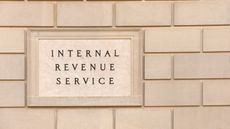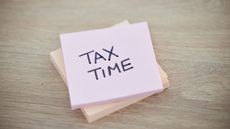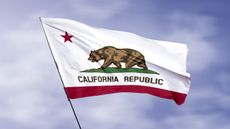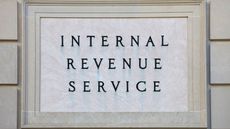Montana State Tax Guide
State tax rates and rules for income, sales, property, fuel, cigarette, and other taxes that impact Montana residents.
- (opens in new tab)
- (opens in new tab)
- (opens in new tab)
- Newsletter sign up Newsletter

Bottom Line
Middle-Class Families: Tax-Friendly (Go to the Kiplinger Tax Map for Middle-Class Families)
Retirees: Mixed Tax Picture (Go to the Kiplinger Tax Map for Retirees)
You can buy all the jewelry you want tax-free in the Gem State — there's no state sales tax at all, though some resort destinations impose them.

Sign up for Kiplinger’s Free E-Newsletters
Profit and prosper with the best of expert advice on investing, taxes, retirement, personal finance and more - straight to your e-mail.
Profit and prosper with the best of expert advice - straight to your e-mail.
Income taxes are on the high side, though. That's due in large part to the fact that the top rate kicks in at a relatively low income threshold. But the rate structure is changing in 2024, which will help some taxpayers.
On the property-tax front, the statewide median rate is rather modest. It's in the middle of the pack when compared to median rates in other states.
Montana Income Taxes
Montana Income Tax Range
Low: 1% (on up to $3,300 of taxable income)
High: 6.75% (on taxable income over $19,800)
Beginning in 2024, there will be only two tax rates: 4.7% (on up to $20,500 of taxable income for single filers and $41,000 for married couples filing jointly) and 6.5% (on taxable income over $20,500 for single filers and $41,000 for married couples filing jointly).
Montana Taxation of Social Security Benefits
Social Security benefits are taxable. The method used to calculate the taxable amount for Montana income tax purposes is similar to the method used for federal returns. However, there are important differences. As a result, the Montana taxable amount may be different than the federal taxable amount.
Beginning in 2024, Social Security benefits are taxed by Montana to the same extent they are taxed at the federal level.
Montana Tax Breaks for Other Retirement Income
For 2022, up to $4,640 of income from a retirement plan (including 401(k) plans and IRAs) is exempt for taxpayers with federal adjusted gross income of $40,980 or less ($43,300 or less for joint filers). If married, each spouse can claim the exemption.
In addition, taxpayers age 65 or older can exclude up to $800 ($1,600 for joint filers) of interest income.
Railroad Retirement benefits are also exempt.
Beginning in 2024, the exemptions for retirement plan income and interest income are repealed. Instead, taxpayers age 65 and older will be able to deduct up to $5,500 of any income (adjusted for inflation each year after 2024).
Montana Sales Tax
No state sales tax. Resort areas such as Big Sky, Red Lodge and West Yellowstone have local sales taxes.
Montana Real Property Taxes
In Montana, the median property tax rate is $740 per $100,000 of assessed home value.
Montana Property Tax Breaks for Retirees
Any homeowner or renter 62 or older can apply for a refundable income tax credit worth up to $1,150 if they have lived in Montana for nine months, occupied a residence for six months and have a total household income of less than $45,000.
Montana Motor Fuel Taxes
Gasoline: 33.25¢ per gallon.
Diesel: 30.3¢ per gallon.
Montana Sin Taxes
Cigarettes and many little cigars: $1.70 per pack
Moist snuff: $0.85 per pack
Other tobacco products: 50% of the wholesale price
Beer: $0.14 per gallon
Wine: $1.02 per gallon
Liquor: $9.83 per gallon (the liquor tax is an estimate by the Distilled Spirits Council of the United States and published by the Tax Foundation)
Marijuana: 20% state excise tax on retail price, state and local sales tax, and possible local-option excise tax of up to 3% of retail value
Montana Estate and Inheritance Taxes
No estate or inheritance tax.
Rocky Mengle was a Senior Tax Editor for Kiplinger from October 2018 to January 2023 with more than 20 years of experience covering federal and state tax developments. Before coming to Kiplinger, Rocky worked for Wolters Kluwer Tax & Accounting, and Kleinrock Publishing, where he provided breaking news and guidance for CPAs, tax attorneys, and other tax professionals. He has also been quoted as an expert by USA Today, Forbes, U.S. News & World Report, Reuters, Accounting Today, and other media outlets. Rocky holds a law degree from the University of Connecticut and a B.A. in History from Salisbury University.
-
-
 IRS Service Improvements Could Bring Faster Tax Refunds
IRS Service Improvements Could Bring Faster Tax RefundsRecent IRS improvements mean taxpayers could see faster tax refunds next year and beyond.
By Katelyn Washington • Published
-
 For Best Tax Savings, Year-Round Tax Planning Is Essential
For Best Tax Savings, Year-Round Tax Planning Is EssentialFor optimal, ongoing tax reduction, consider employing these nine strategies throughout the entire year.
By Andy Leung, Private Wealth Adviser • Published
-
 How to Lower Your Tax Bill Next Year
How to Lower Your Tax Bill Next YearKnowing how to lower your tax bill (pay less taxes) when it's time to file your return next year requires some strategizing through the rest of 2023. Here are some tax tips to help make it happen.
By Katelyn Washington • Published
-
 Indiana Storm Victims Have an Extended IRS Tax Deadline
Indiana Storm Victims Have an Extended IRS Tax DeadlineIndiana taxpayers impacted by recent severe storms have an extension of the April 18 deadline to file federal tax returns.
By Katelyn Washington • Published
-
 IRS Says File Soon for $1.5 Billion in Unclaimed Tax Refunds
IRS Says File Soon for $1.5 Billion in Unclaimed Tax RefundsUnclaimed tax refunds from 2019 are waiting for millions of people who might not know it – but only if they file the pandemic-era tax return soon. Are you one of them?
By Kelley R. Taylor • Published
-
 Tax Tips for Last-Minute Filers
Tax Tips for Last-Minute FilersTime has run out for most people to file taxes for 2022, but these tax tips could help you file soon after the tax deadline and possibly keep more money in your pocket at the same time.
By Katelyn Washington • Published
-
 How to Pay the IRS if You Owe Taxes
How to Pay the IRS if You Owe TaxesThere are several ways to pay the IRS if you owe taxes, but just because you can pay your tax bill over time doesn’t always mean you should.
By Katelyn Washington • Published
-
 Who is Required to File a Tax Return, and Who Isn't
Who is Required to File a Tax Return, and Who Isn'tIf you meet certain income requirements, you are required to file a federal tax return (or get an extension) by Tax Day. You could face penalties if you don't.
By Katelyn Washington • Published
-
 California Tax Deadline Extension: What You Need to Know
California Tax Deadline Extension: What You Need to KnowSome Californians have more time to file federal and state tax returns because of natural disasters.
By Kelley R. Taylor • Published
-
 IRS Says Some Stimulus Check Recipients Should File an Amended Tax Return
IRS Says Some Stimulus Check Recipients Should File an Amended Tax ReturnSome early filers who received state "stimulus" payments may need to file an amended tax return to possibly get a refund.
By Kelley R. Taylor • Last updated









